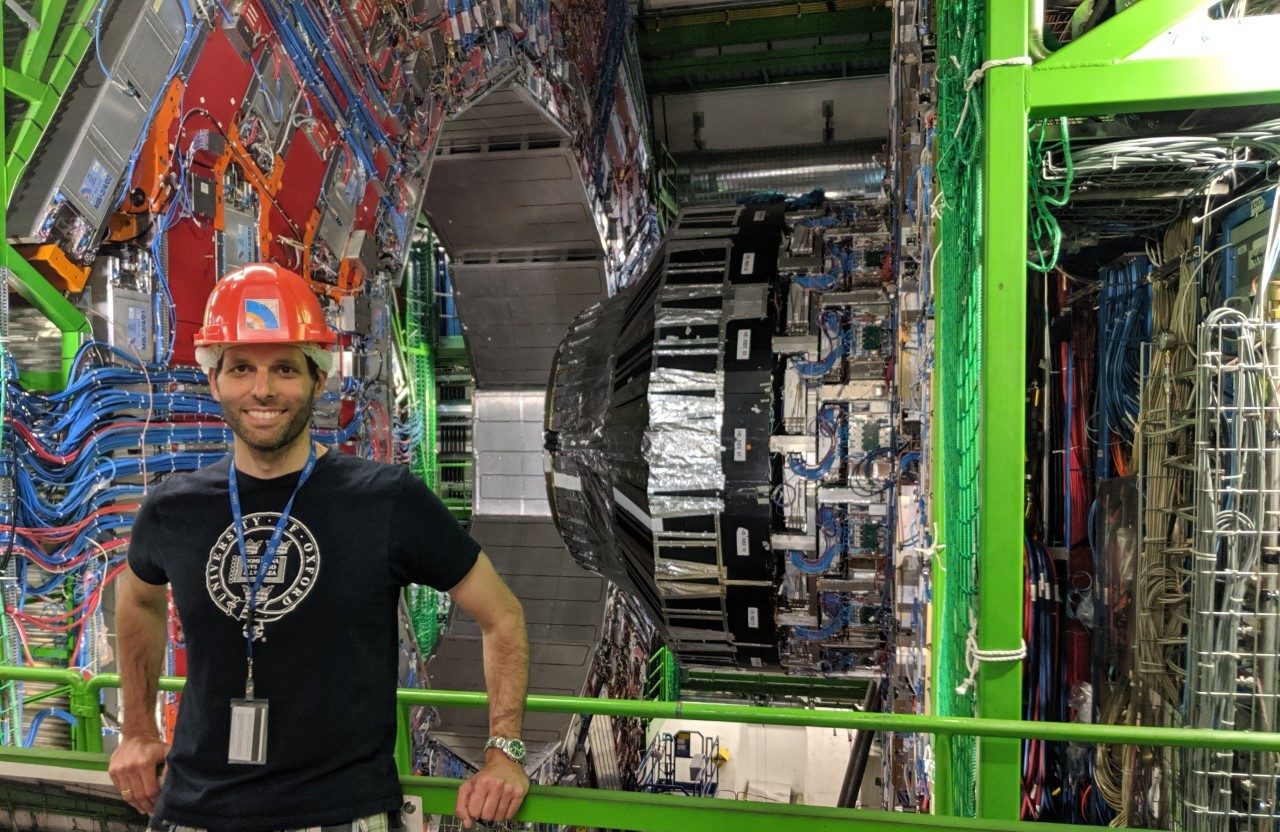This fall, Fabian Ruehle, PhD, joins the College of Science Physics and Mathematics Department as an assistant professor. After earning his PhD at the University of Bonn, Germany, Dr. Ruehle was a Postdoctoral Researcher at DESY Hamburg, at the University of Oxford, and a fellow in Theoretical Physics at CERN, the European Council for Nuclear Research. His plans at Northeastern University involve starting his own interdisciplinary lab with graduate and post doctorate students.
Why did you choose Northeastern?
Northeastern is at the forefront of scientific development in my field of research, i.e., physics and artificial intelligence. The foundation of the NSF AI Institute for Artificial Intelligence and Fundamental Interactions (IAIFI) really cemented Northeastern’s (and other Boston universities) leadership in this area.
In addition, I was already acquainted with the campus and some of the physics faculty members. I visited campus on several occasions to attend conferences and workshops, deliver a seminar talk, and collaborate with staff members.
What areas of research are you focused on or have focused on in the past?
My research is on theoretical high energy physics. More precisely, I work on a theory called string theory, which provides a unified framework to study all fundamental forces and particles we observe in the universe. In addition to particle physics and cosmology, this theory has led to advances in pure mathematics. Moreover, it serves as a testing ground for the latest tools in numerical and computational mathematics. So, in fact, I am working at the interface of all these disciplines.
What are you currently working on?
In 2017, I and others started independently incorporating artificial intelligence and machine learning techniques into string theory research. This research has led to a plethora of interesting applications of AI to physics and physics to AI research. I greatly enjoy leveraging the power of one field to advance the other, and I plan to continue working on this subfield for a while.
Are you actively part of any labs or have plans to join/start a lab at Northeastern?
Thanks to the startup grant from Northeastern, I will be starting my own research group with a postdoc and students. In addition, my research lends itself to collaborations with colleagues in math, computer science, and the private sector, which I will explore in the future.
What excites you the most about continuing your career at Northeastern?
Northeastern provides a vibrant research environment with colleagues at many different stages in their scientific careers. Moreover, it seems particularly easy to form cross-department collaborations – indeed, I will be affiliated with both the physics and mathematics departments. Given the interdisciplinary nature of my research, this is very important to me.
What do you hope to get out of your time as a faculty member?
I am thrilled about the opportunity to train the next generation of scientists to work at the interface of physics and AI. I consider the symbiosis of the two subjects an extremely promising, future-oriented research direction, and students trained in it will be ideally positioned for their careers, either in academia or the private sector. And of course, I look forward to enhancing the prominence of Northeastern through cutting-edge research with my group and in collaborations with other faculty members.
What courses are you offering this semester, and which are you most excited to teach?
This semester I am teaching the introductory course for physics. The lecture has one of the highest student enrollments, and since I am new to Northeastern and the U.S., it will allow me to become acquainted with our diverse student body. Moreover, the lecture sets the pace for the rest of the physics courses. Therefore, it is the perfect opportunity to get new students excited about physics and introduce them to problem-solving techniques that will be useful for the rest of their studies.
What is a fun fact our community should know about you?
I studied for one year in Massachusetts as an exchange student, and I enjoyed my time so much that I have always had this vague idea of returning at some point.

